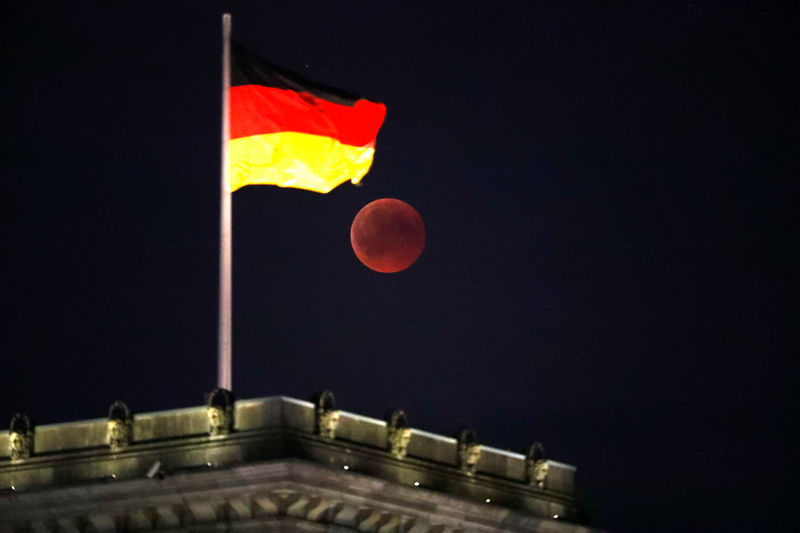By Geoffrey Smith
Investing.com -- Europe's largest economy can't catch a break, as fresh economic data released on Friday showed industry shrinking and consumers closing their wallets.
To make matters worse, the German government is also coming under increasing pressure from its EU neighbors about the massive relief package it laid out for its own economy this month, with outgoing Italian Prime Minister Mario Draghi and others lambasting it for a go-it-alone approach to the energy crisis that takes no account of the rest of the bloc's needs.
Statistics Office Destatis said on Friday that industrial output fell 0.8% in August, more than expected by economists, as supply chain bottlenecks persisted, while exceptionally low water levels in the River Rhine closed a key transport route for fuel and other essential industrial goods.
Those problems squeezed the costs of vital imports up even further, generating fresh pressure in the inflationary pipeline that is likely to be reflected in consumer prices with its usual time lag. Import prices rose 4.3% from July, more than twice the expected increase of 2.0%, and are now up 32.7% on the year.
Retail sales meanwhile, slumped 4.3% from July in real terms, with high prices amplifying the trend away from durable goods purchases that has been visible for some months as the distortions caused to spending patterns by the pandemic slowly disappear in the rearview mirror.
"German industry and the entire economy have not come to an abrupt stop but are rather in the middle of a long and gradual slide into recession," said ING's Carsten Brzeski, warning that there is more to come as a winter of reduced gas supplies begins.
"High energy prices will increasingly weigh on private consumption and industrial production, making a contraction of the economy inevitable," Brzeski said. "The only question is how severe such a contraction or recession will be."
Four leading economic institutes said last week their baseline estimate for next year is now a contraction of 0.4%, but they warned that it could be much, much worse: in a worst-case scenario where Russia cuts off all gas supplies and winter temperatures drop below their usual levels, the economy may shrink over 7%, they warned - a far more extreme outcome than anything seen in recent history.
Such is the context of the federal government's decision to authorize up to 200 billion euros in new borrowing to cope with the energy crisis, which Chancellor Olaf Scholz will have to defend at a meeting of European leaders in Prague on Friday.
The emergency fund is unashamedly aimed at sustaining overall levels of consumption, something that will force up the wholesale price of gas for other countries which don't have as much financial firepower to throw at the crisis.
“Facing the common threats of our times, we can't divide ourselves according to the space in our national budgets,” Draghi said earlier this week. Hungary's Prime Minister Viktor Orban - admittedly not someone who can count on much European support after spending much of the year blocking EU sanctions packages on Russia - said it would encourage "cannibalism" in the race to secure gas supplies.
